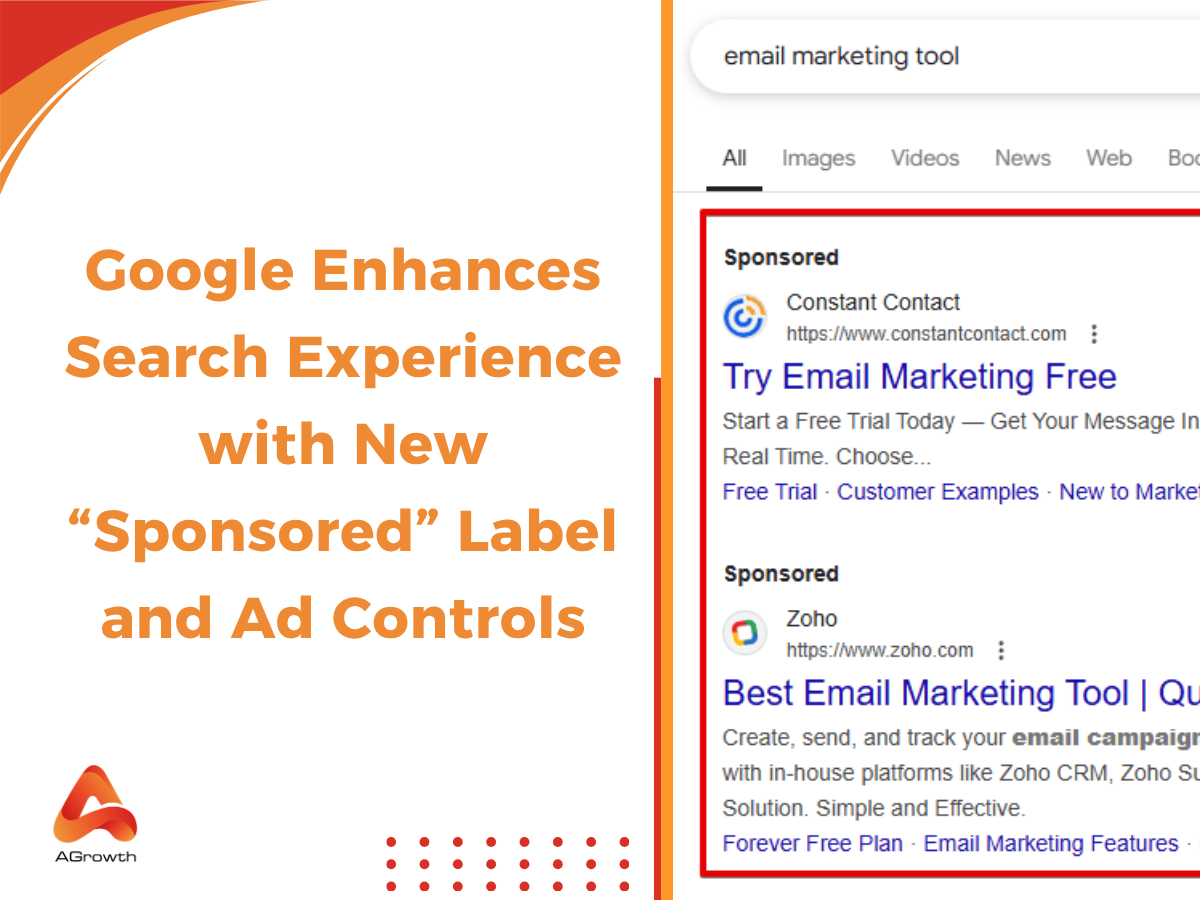
Table of Contents
Navigating Google Ads Restricted Content in 2025: Guide for every Advertiser
Running ads on Google opens up massive opportunities to reach billions of users. However, Google doesn’t allow all types of content to appear in its advertising ecosystem. Beyond completely prohibited categories, there’s a significant middle ground known as restricted content. These are products, services, or ad formats that advertisers can promote, but only under specific conditions, certifications, or geographic limitations.
Understanding restricted content is critical for agencies, performance marketers, and brands in regulated industries. Mishandling these policies can lead to ad disapprovals, account restrictions, or even suspensions.
This article explores what restricted content means, the main categories, how to meet Google’s requirements, and best practices for running campaigns compliantly in 2025.
The Main Types of Google Ads Restricted Content
Google's restricted content policies cover a wide array of categories, each with its own set of specific rules and requirements. What might be permissible in one region could be strictly prohibited in another, adding a layer of complexity for global advertisers. Let's explore some of the most common and challenging restricted content categories.
Before we delve into the specifics of each category, it's important to remember that Google's policies are subject to change. As a best practice, always refer to the official Google Ads Policies for the most current and detailed information.
Ad protections for children and teens
Google has implemented robust policies to protect minors from being targeted with inappropriate or sensitive ad content. These protections include disabling ad personalization for users under the age of 18 and restricting the promotion of certain product and service categories.
For advertisers, this means that even if your products are not inherently restricted, your targeting options may be limited if your audience includes a significant number of minors. Understanding and respecting these boundaries is crucial for ethical and compliant advertising.
Sexual content
Sexual content in ads walks a tightrope. While explicit or erotic content is prohibited, some related content may be allowed in controlled environments. Key considerations include:
-
Ads that are sexually suggestive but not explicit may run in limited formats or geographies.
-
Certain regions (e.g., Vietnam, Thailand, Middle East nations) completely block sexual content ads even when permitted elsewhere.
-
Notably, in May 2024, Google banned deepfake pornography ads outright—any service or instructions around generating AI-based sexual images triggers immediate suspension.
Alcohol
The promotion of alcoholic beverages is subject to a complex web of local laws and regulations, which are reflected in Google's policies. In some countries, advertising alcohol is entirely prohibited, while in others, it is allowed with specific restrictions.
These restrictions often pertain to the age of the targeted audience, the content of the ad (e.g., not glorifying excessive consumption), and the inclusion of responsible drinking messages. Advertisers must ensure their campaigns are geotargeted to regions where alcohol advertising is permitted and that their ad creative and landing pages comply with all applicable laws and Google's policies.
Copyrights
Respect for intellectual property is a cornerstone of Google's advertising policies. Using copyrighted material, such as images, text, or brand names, without the explicit permission of the copyright holder is a direct violation. This can lead to ad disapprovals and legal repercussions. If you are a reseller or an authorized distributor of a copyrighted product, you may be required to provide documentation to Google to prove your legitimacy.
Gambling and games
The advertising of gambling and games is another highly regulated and location-dependent category. Google maintains a list of countries where online gambling is permitted, and advertisers must obtain a special certification to run ads in these regions. The certification process often involves providing proof of a valid gambling license. Even with certification, there are strict rules about the content of the ads, which must promote responsible gambling and not target minors.
Healthcare and medicines
Given the potential for significant harm, the advertising of healthcare and medicines is subject to some of the most stringent regulations. This category includes pharmaceuticals, medical devices, and certain health supplements. In many cases, advertising prescription drugs directly to consumers is prohibited. Online pharmacies must be certified by Google and meet specific criteria to run ads. Advertisers in the healthcare space must be extremely careful with their claims and ensure that all ad content is accurate, evidence-based, and compliant with local laws.
Political content
Political advertising is a sensitive area, and Google has implemented policies to ensure transparency and prevent the spread of misinformation.
Advertising around politics is sensitive and highly regulated:
-
Requires advertiser verification, especially when targeting voters or running election-related messaging.
-
Policies differ by country and change frequently; e.g., Google plans to stop serving political ads in the EU starting late 2025 due to regulatory complexity.
Financial products and services
Google Ads places strict limitations on the promotion of financial products and services to ensure user safety and transparency. The goal is to provide people with enough information to make well-informed financial decisions while protecting them from misleading, harmful, or exploitative practices.
For policy purposes, financial products and services include any offerings connected to the management, lending, or investment of money. This also covers areas such as cryptocurrency products and personalized financial advice.
Examples include:
-
Personal loans: Lenders must disclose minimum and maximum repayment periods, APR, and all associated fees. Short-term, high-APR payday loans are prohibited in many regions.
-
Loan modification and debt relief services: Ads cannot make misleading claims about guaranteed results or instant approvals.
-
Credit repair services: These are closely monitored to prevent deceptive practices, such as promising to remove accurate negative credit information.
-
Cryptocurrency products and exchanges: Depending on the country, ads may only run if the advertiser is licensed by relevant financial authorities.
Cryptocurrencies and related products
Advertising rules for cryptocurrencies are among the strictest within Google Ads due to the complex, fast-changing regulatory environment surrounding digital assets. Google takes a cautious approach to ensure that users are protected from misleading or high-risk promotions, while still allowing legitimate businesses in the crypto space to reach potential customers.
In practice, not every crypto-related business needs Google certification to advertise, but many do. Understanding this distinction is essential for any advertiser planning to promote cryptocurrency products or services.
When certification is not required
Some cryptocurrency-related activities are considered low-risk and may be promoted without prior approval from Google. For example:
-
Merchants that simply accept cryptocurrency as a payment method for their goods or services.
-
Companies selling cryptocurrency mining hardware.
-
NFT-based games where players can purchase in-game items (such as skins, apparel, or virtual equipment) that enhance gameplay but do not represent financial investment instruments.
When certification is required
Most businesses that involve trading, holding, or investing in digital assets must go through Google’s certification process before running ads. These include:
-
Cryptocurrency exchanges where users can buy, sell, or trade digital coins.
-
Digital wallets are designed to store, transfer, or manage cryptocurrencies.
-
Cryptocurrency trusts or funds that allow pooled investment in digital assets.
Trademarks
Similar to copyright, the unauthorized use of trademarks is a violation of Google's policies. While advertisers are generally allowed to use trademarks in their ad copy if they are reselling a product or providing information about it, they cannot use trademarks in a way that could confuse users about their affiliation with the trademark owner. If a trademark owner files a complaint, Google will review the ad and may restrict its use of the trademark.
Restricted ad formats and features
Beyond the content of your ads, Google also has restrictions on certain ad formats and features. For example, some advanced features, such as dynamic ads or certain types of ad extensions, may not be available for all advertisers or in all industries. Additionally, there are technical requirements for ad formats like HTML5 ads. Staying up-to-date on these restrictions is important for leveraging the full capabilities of the Google Ads platform.
What Happens If Your Google Ads Account Contains Restricted Content?
When Google detects restricted content in your ads, several things can happen depending on the severity:
-
Ad Disapproval – Your ads won’t serve until issues are fixed.
-
Limited Reach – Ads may only appear in approved countries or to eligible audiences.
-
Certification Requirement – You’ll be asked to submit documentation or licenses to continue advertising.
-
Account Enforcement – Repeated or intentional violations can escalate to account suspension.
According to Google Ads policy, restricted content exists to protect users, comply with local regulations, and ensure ads don’t promote harmful behavior.
How to Handle Disapprovals for Google Ads Restricted Content
Even the most diligent advertisers can find their ads disapproved for restricted content violations. When this happens, it's important to have a clear and systematic approach to resolving the issue. Panicking or making hasty changes without understanding the root cause of the disapproval can often make the situation worse.
Check the Specific Policy
The first and most crucial step is to carefully review the reason for the disapproval provided by Google. In your Google Ads account, you can find details about the specific policy that your ad has violated. Don't just skim the policy name; take the time to read the full policy description and understand the nuances of the rule you have broken.
This will give you a clear understanding of what needs to be fixed. If you're struggling to understand the reason for the disapproval, our guide on Google Ads Disapproval can provide further clarification.
Apply for Certification
If your business operates in a restricted category and you believe you meet the necessary legal and policy requirements, applying for certification is the next logical step.
The certification process, as mentioned earlier, will require you to provide documentation to Google. While this can be a time-consuming process, it is often the only way to get your ads approved in these highly regulated industries.
Utilize an Agency Account
For many businesses, navigating the complexities of Google's restricted content policies and the certification process can be a daunting and resource-intensive task. This is where partnering with a specialized Google Ads agency can be a game-changer. An experienced agency will have a deep understanding of the policy landscape and a proven track record of getting ads approved in challenging verticals.
At Agrowth, we specialize in helping businesses navigate the intricacies of Google Ads, including the challenges of advertising restricted content. Our team of experts can guide you through the certification process, audit your campaigns for compliance, and develop a strategy to get your ads approved and performing.
Best Practices for Running Ads in Restricted Industries
Successfully advertising in a restricted industry requires more than just getting your ads approved. It requires a strategic and proactive approach to compliance and a commitment to providing a positive user experience. Here are some best practices to keep in mind:
-
Be Proactive with Compliance: Don't wait for your ads to be disapproved to start thinking about compliance. Make it a core part of your campaign planning and management process. Regularly review Google's policies and stay up-to-date on any changes that may affect your industry.
-
Focus on Transparency: In many restricted categories, transparency is key. Be upfront with users about your products or services, including any potential risks or side effects. Avoid making exaggerated or misleading claims in your ad copy and on your landing pages.
-
Prioritize User Experience: A high-quality landing page is essential for all advertisers, but it's especially important in restricted industries. Ensure your landing page is professional, easy to navigate, and provides clear and comprehensive information. A poor user experience can lead to higher bounce rates and may even trigger a policy review from Google. For more on this, review the Google Ads editorial guidelines.
-
Build a Strong Relationship with Your Google Rep: If you have a dedicated Google representative, cultivate a strong working relationship with them. They can be a valuable resource for clarifying policy questions and getting assistance with ad disapprovals.
-
Test and Iterate: Don't be afraid to test different ad copy and landing page variations to see what resonates with your audience while remaining compliant. A/B testing can help you find the sweet spot between performance and policy adherence.
Final Thoughts
Restricted content in Google Ads isn’t a roadblock—it’s a framework designed to protect users and uphold industry standards. For advertisers in regulated industries, success comes from understanding the rules, obtaining proper certifications, and structuring campaigns compliantly.
If your business operates in alcohol, gambling, healthcare, finance, or crypto, make compliance a core part of your ad strategy. Doing so not only avoids account disruptions but also builds long-term trust with both Google and your audience.
📩 Ready to run ads in restricted industries without the compliance headaches?
Partner with AGrowth and leverage our premium agency ad accounts; trusted, stable, and backed by Google reps. Contact us today to start scaling safely.
Read more:








Your comment